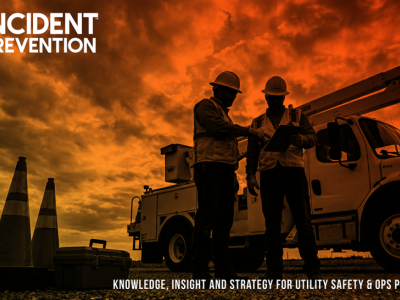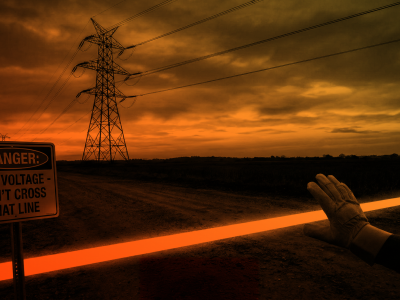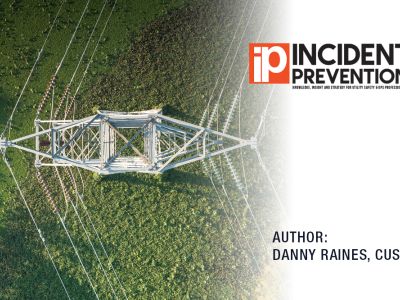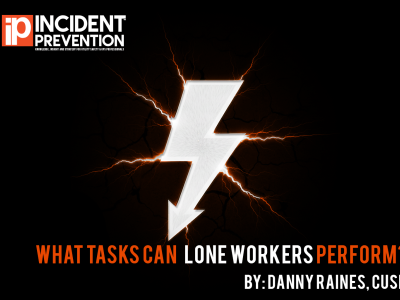Danny Raines, CUSP

Danny Raines, CUSP
Danny Raines, CUSP, is an author, an OSHA-authorized trainer, and a transmission and distribution safety consultant who retired from Georgia Power after 40 years of service and now operates Raines Utility Safety Solutions LLC.

‘Can I Be the Leader?’
Leadership continues to be a critical area of focus for utility safety and operations professionals. In my own career at Georgia Power, “Can I be the leader?” was a question I often asked myself and my employer. Now, in this installment of “Voice of Experience,” I am going to discuss the opportunities I was afforded […]

Don’t Cross That Line
In this installment of “Voice of Experience,” I am going to share a safety perspective that struck a real chord with me when someone offered it during a recent meeting. My goal in passing it along during this season of reflection is to prompt readers to contemplate and continue refining their safe work practices. From […]
Accuracy Above All: Authoring Articles for iP Magazine
For over 17 years, I have had the distinct privilege of writing for Incident Prevention magazine. I am genuinely honored that iP continues to publish my articles. My first column was about the four principles of distribution cover-up. At last count, I had written and submitted more than 100 articles over the years. During that […]

Clearing Up Confusion About Host-Contractor Relationships
In my consulting work, I’ve found there is some industry confusion regarding the relationship between a host utility and an independent contractor company. To help provide clarity, I’m going to kick off this installment of “Voice of Experience” with an overview of each party’s obligations from an OSHA perspective. A contract employee performs work covered […]
Bucket Truck Safety: OSHA Standards and Other Considerations
I receive numerous and varied questions about the safe use of bucket trucks in electric utility operations, so in this installment of “Voice of Experience,” I am going to share with you the OSHA standards you need to know as well as some things I have discovered during observations and audits of field crews. First, […]
A Checkup from the Neck Up
The pastor of the church I attend recently delivered a sermon that deeply resonated with me and inspired the title of this article. Around that time, I’d been ruminating on some incidents I was investigating as part of my consulting work. I’d read the accident reports and conducted employee interviews, all the while wondering why […]
To Improve On-the-Job Safety, Consistency and Continuing Education are Key
It’s a little late to say Happy New Year, but I still want to wish all of you a fantastic and safe 2025. One of my hopes for this year is that I won’t be asked to investigate another incident or fatality – because we’ll all work together to ensure they never occur. We’ve had […]
Don’t Do This: Lessons Learned in the Field
I was so excited when I became a journeyman lineman in the early 1970s. In those days, there was no such thing as a journeyman ticket – a union member or business agent would let you know that you had arrived. Seniority alone was the driver. I was a union lineman in IBEW 84/896 located […]
The Meter Base Checkout Procedure
To emphasize the critical importance of the meter base checkout procedure, this installment of “Voice of Experience” will cover the proper procedures for (1) checking out a meter base before setting a self-contained meter on new services and (2) resetting a meter after it has been removed and the base has not been in use. […]

What Tasks Can Lone Workers Perform?
Over the course of my career in the utility industry, I’ve often been asked what tasks lone workers are allowed to perform on their own. It’s sometimes a hotly debated topic – both legally and ethically – and the answer is very much based on the employer. Each employer determines which tasks are allowed to […]

